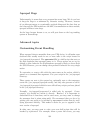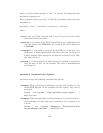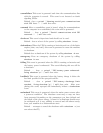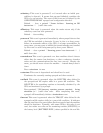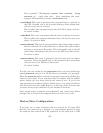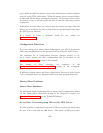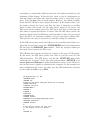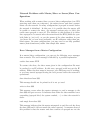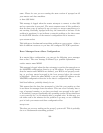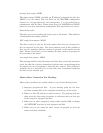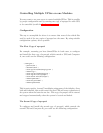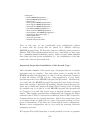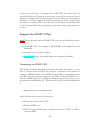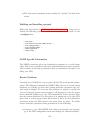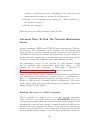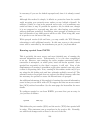same. Please be sure you are running the same version of apcupsd on all
your master and slave machines.
to slave SSS failed
This message is logged when the master attempts to connect to slave SSS
and no connection is accepted. The most common cause of this problem is
that the slave copy of apcuspd is not yet ready to accept connections or is
not running. Generally, apcupsd will retry the connection a bit later. If the
problem is persistent, it can indicate a network problem or the slave name
on the SLAVE directive of the master’s configuration file is incorrect.
open stream socket
This indicates a fundamental networking problem on your system – either a
lack of sufficient resources or you have not configured TCP/IP operations.
Error Messages from a Slave Configuration:
In a master/slave configuration, you can get the following error messages
from a slave. The error message is followed by a possible explanation:
resolve master name MMM
This message is logged when the slave attempts to resolve the name given on
the MASTER configuration directive to an IP address. It probably means
that the master name MMM is not defined, your DNS is not properly work-
ing, or you have started apcupsd in the boot process before the network
is initialized. Check the name MMM, or use an explicit IP address on the
MASTER configuration directive in the slave’s configuration file.
bind local address, probably already in use
This means that the slave has attempted to bind the port number so that
it can listen for messages from the master. This can occur if already have a
copy of apcupsd running, or you have previously run apcupsd in the past 5
or 10 minutes, because occasionally the operating system will not shutdown
a port correctly for 5 to 10 minutes after a program exits. In this case, you
can either wait a few minutes for the problem to go away, or use a different
port in both your master and slave configuration files.
accept error
The slave got an error waiting on the accept() system call. This is probably
due to a fundamental networking problem.
109



